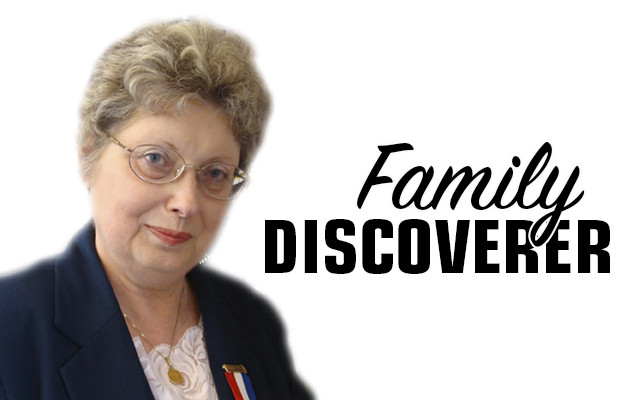
Fixing errors
By Nancy Battick
Have you ever run across an error in a vital record? A misspelled name or a wrong date, perhaps? You know there’s an error but is there anything you can do about it? The answer is maybe.
The Maine Center for Disease Control and Prevention in Augusta offers a form for correcting an error in a vital record. An error discovered on a record that is under 90 days old can be corrected fairly easily but if the record is older than 90 days things get a little more complicated.
I recently found an error on a death record from the 1930s. The decedent’s name, Annie, was correct and I don’t doubt the listed cause of death. The problem arises with the first name of Annie’s father. He’s listed as Samuel instead of Royal. The informant for the personal portion of the record was the daughter, who had lived with her mother all her life and should have known the correct name of her grandfather, but whether flustered by her mother’s death or poor memory she gave the wrong name, and now Samuel is enshrined in the official record.
Why would it matter? The problem is one of linkage between one generation to another on an application for a lineage society. An error in a given name of a parent can be a serious obstacle, especially if there is no birth certificate for the child. Unfortunately, that happened more often than we like. In Maine beginning in 1892, all vital records were required by law to be reported to the state. Sometimes that wasn’t done, whether because a doctor was neglectful or the town clerk didn’t want to bother. In this case, Annie’s birth wasn’t recorded because she was born in the 1850s in a town where records weren’t kept very well. This also happens when a town’s vital records were destroyed by fire or someone decided to clear out old records.
Obviously, Annie’s vital record is over 90 days old. There is a special form for this called a Supplemental Certificate of Death. Only the funeral director, informant or authorized person can apply to correct information that is non-medical. When all the people involved are long since dead, proof is called for, and a $60 fee is charged along with two acceptable forms of supporting documentation. The further back in time your research takes you, the more difficult it will be to find acceptable proof. A census record might be one but in the case of lost, missing, or never reported records, the burden of proof makes it unlikely you can make a change to the official record now.
It’s frustrating, as the official record is always considered correct no matter how many actual errors it contains. In the case of Annie’s father, I will have to enclose a note of explanation with the lineage society application, indicating there was no Samuel in Annie’s town of birth and hope for the best. Fingers crossed it will be okay.
Nancy Battick is a Dover-Foxcroft native who has researched genealogy for over 30 years. She is past president of the Maine Genealogical Society, author of several genealogical articles and co-transcribed the Vital Records of Dover-Foxcroft. Nancy holds an MA in History from UMaine and lives in Dover-Foxcroft with her husband, Jack, another avid genealogist. You can contact Nancy at nbattick@roadrunner.com.